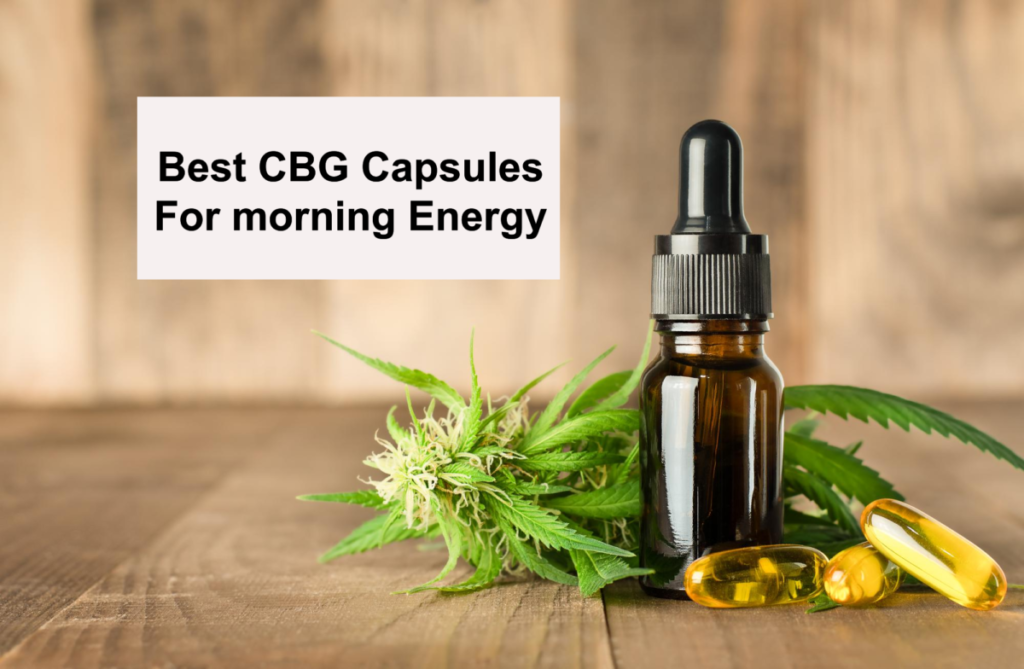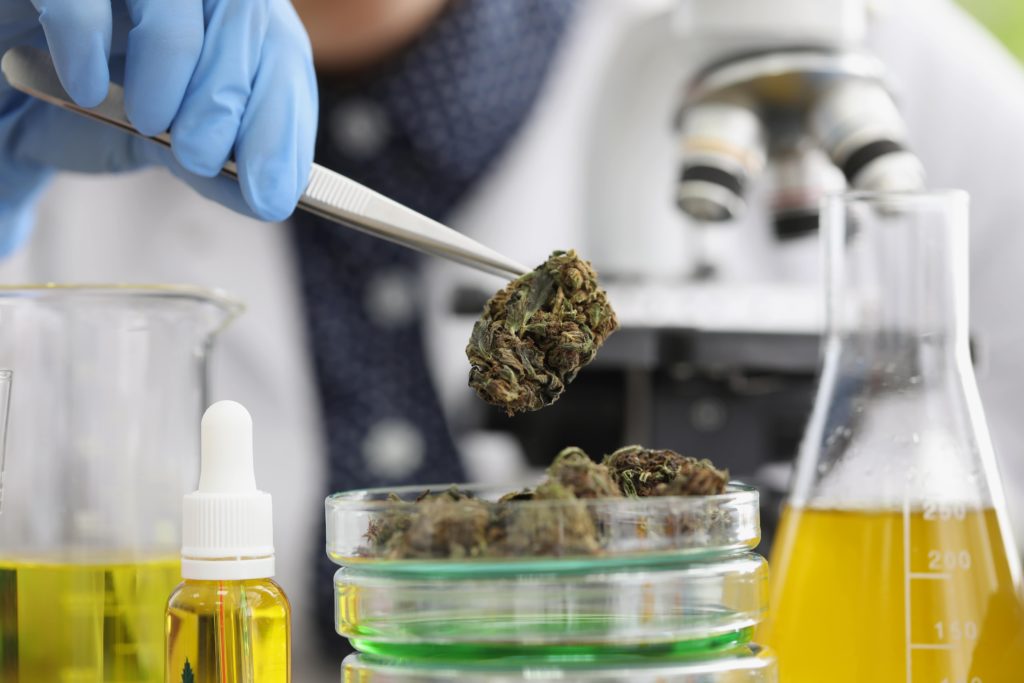CBG contains many relieving benefits and anti-properties to treat chronic diseases and improve wellbeing. CBG is brought from hemp-derived cannabis and processed from the CO2 extraction procedure. Know about the benefits of CBG for Depression, along with what is CBG and Depression.CBG holds powerful antibacterial, antioxidant, anti-inflammatory, and anticonvulsant properties. CBG is an ideal compound for stimulating bone growth, improving diet, boosting focus, and relieving intense pain.
Do some research studies explain why to have CBG for depression? CBG assists in helping to reduce anxiety and depression. CBG for anxiety issues. Now we must move forward to learn more about the benefits of CBG for depression to get through depression.
Why Have CBG?
- Tracing back to 1964, when first identified CBG in acidic form and consequently gave life to the other cannabinoids.
- CBGA (Cannabigerolic acid) is a single thread for significant cannabinoids: Cannabichromenic acid (CBCA), Cannabidiolic acid (CBDA), and tetrahydrocannabinol acid (THCA). When exposed to heating, they lose their acidic nature and thus form CBC, CBD, and THC.
- CBGa gets exposed to intense heating, losing its three-dimensional propyl structure. It was possible through the decarboxylation process of heating. Extracted CBG was through ethanol or CO2 extraction procedure from the natural hemp-derived cannabis plants.
- CBG was identified among 120 cannabinoids, their precursor present in cannabis plants. The strains of cannabis hold less extract of CBG, but it survives because it is a parental compound for other cannabinoids.
- As per a research study, CBG binds directly with the ECS receptors present in our body. A non-psychoactive component relieves various ailments to enhance an individual’s health. But, comparably to CBD, it acts as an agonist to the CB1 receptor present in the central nervous system.
Also Read: CBG for Stomach Pain
Research Studies Of CBG For Depression?
- In comparison to CBD, there has been minimal research conducted on CBG. Despite its valuable benefits that promote your well-being, it is unlisted under FDA. But, the essential features make CBG an excellent dietary supplement.
- As per a research study, CBG is sold as a dietary supplement as many revelations were considered before the CBDs research studies. CBG, infused within various forms of products, caters to its potential benefits to its users. CBGs have many therapeutic properties.
- To know the benefits of CBG for Depression, we need to go through research studies. Depression is a common illness or a mental state. It causes severe health conditions, affecting the performance of an individual in school or working space.
- CBG is neurodegenerative that preserves the central nervous system from Huntington’s disease, as per a study report. Also, with its antidepressant property, CBG reduces stress, anxiety, and depression for a relaxed and calm mind.
- A research study in 2015 conducted clinical trials on both rats and humans. They discovered that high levels of activated Anandamide enhance mood and alleviate fear. It eliminates the enzymes to inhibit depression and decreases the intensity of depression and anxiety.
- As per a research study, some samples were taken of CBG to treat 51.2% of anxiety, chronic pain 40.9%, and depression 33.1%. The researchers were relaxed to see its promising results. Moreover, 73.9% of users claimed that enriched CBG has improved outcomes for enhancing health. It is a therapeutic medicine for 80% effective in depression, 78.3% in anxiety, and 73% in insomnia.
- CBG in mental health has a role in treating clinical depression CBG. According to a research study, CBG prevents the activation of GABA and serotonin in the central nervous system. It results in escalating the efficiency of neurotransmitters present in the brain. Contrary to it, if the GABA and serotonin levels are associated with depression, CBG ensures the treatment of this disorder.
Depression: A Mental Illness, What Do You Need To Know?
Depression is a mental disability widespread around the world. It can create serious health problems leading to suicide. To know more about depression, read everything about depression given in segments. Look under the sub-heads of symptoms, types, diagnoses, preventions, and the World Health Organization’s estimated data on depression.
Symptoms Of Depression
- Depression in teens and younger children would show the symptoms of irritation, clinginess, sadness, anxiety, and refusal of school.
- In teens, depression displays the symptoms of poor performance, using recreational drugs, excessive sleep, misunderstood, and being socially awkward.
- In aged people, depression is often left diagnosed and is highlighted by back pain, appetite loss, overthinking of suicide, and getting hyper over small matters. Older people find it reluctant to ask for support.
- There are many symptoms of depression, classified into mental and physical symptoms. Look below to find which symptoms of depression you are going through.
Mental Symptoms
- The feeling of sadness, emptiness, and anxiety.
- Feeling guilty, worthless, and helpless.
- Getting cranky more usually
- Angry outbursts and short-tempered
- Sleep disturbances
- Lack of interest in activities
- Concentration troubles
Physical Symptoms
- Digestive issues.
- Appetite loss
- Back pain and chest ache
- Sexual problems
- Muscles and joint aches
- Fatigues
Also Read: How does CBG make you feel?
Types Of Depression
Here are The types of depression mentioned below. Read the description for each type of depression to learn about it.
Common Depression
It is known as Major Depressive disorder, which lasts for more than two weeks or longer than that. It shows the symptoms of anxiousness, sadness, melancholy mood, and feeling of agitation.
Bipolar Disorder
It is also known as “manic depression,” followed by highs and the lowest range of depression. It is difficult to distinguish between depression and bipolar disorder depending on the intensity. Cyclothymic (sy-kloe-THE-mik) disorder has more mild impacts on depression than Bipolar Disorder.
Situational Depression
Stress Response Syndrome occurs due to trouble with stress management. It is the maximum impact of personal issues, career problems, relationship problems, or demise in the family.
Persistent Depressive Disorder
Persistent Depressive Disorder lasts for two years or more. It refers to “Dysthymia” due to persistent low-grade depression and chronic major depression. It displays the symptoms of excess sleep, low self-esteem, and trouble decision-making.
Seasonal Affective Disorder (SAD)
It is a kind of major depression that occurs mostly in the winter season. Doctors suggest light therapy to treat SAD.
Psychotic Depression
Patients dealing with Psychotic depression have the symptoms of hallucinations of seeing and hearing things. They have delusions or false beliefs and paranoia of believing in harm from others.
Peripartum (Postpartum) Depression
Peripartum Depression occurs both in men and women. Women have postpartum weeks after childbirth. An estimated 1 out of 10 men have postpartum depression.
Premenstrual Dysphoric Disorder (PMDD)
Women with premenstrual dysphoric disorder get the symptoms of weight loss, stress, cramps, headaches, weakness, and fatigue.
Also Read: CBG As An Appetite Stimulant: Explore More
Diagnosis Of Depression
Doctors would perform a diagnosis of depression. They conduct physical examinations to detect the reasons for depression and underlying health issues.
Doctors might ask for blood tests to check your WBC, RBC, and thyroid. Your psychiatrist might ask questions about your issues and relationships with people. Lastly, they might use the Diagnostic and Statistical Manual of Mental Disorders (DSM-5). You can have medication, but only with the suggestions of your doctor. Do not take any medicines without taking advice from your doctor.
WHO Estimates On Depression
According to the World Health Organization estimates, 3.8% of the population suffers from depression. This 5.0% of adults and 5.7% of aged people are affected by this mental illness.
Most people die of suicide, estimated to be 700,000 between 15 – and 29. It estimates that around 280 million people die from depression worldwide. WHOs Mental Health Action Plan 2013- 2030 features the steps to be taken to prevent Depression: A mental illness. The primary goal of this program is to cater services to people going through depression. It includes the health workers’ health services for neurological and drug use disorders.
Also Read: Top 5 CBG Products To Try In 2023
The Bottom Line
Lastly, the blog is all about CBG for Depression. It includes everything you need to know about CBG For Depression: CBG and depression.
Interesting Reads:
Bear In Mind: CBG For Bladder Dysfunctions



